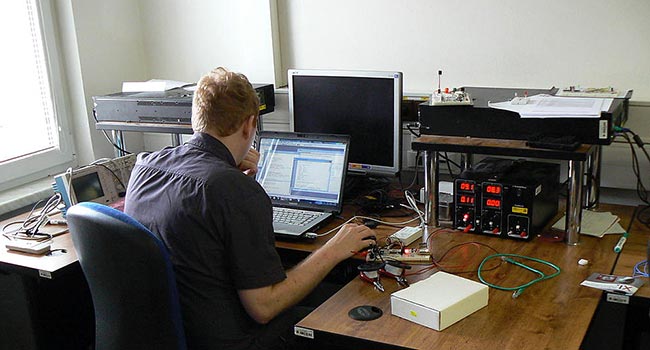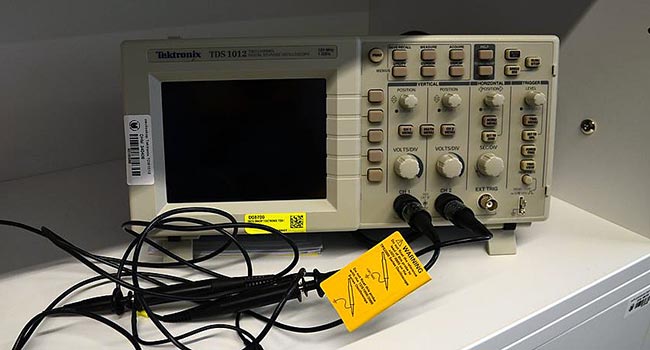Programmable Technical Structures – Field of study catalogue MU
Programmable Technical Structures |
Embedded Systems is a comprehensive study programme of programmable structures overlapping with parallel and distributed systems, computer networks, and cryptography. The programme covers basic theories, research methodology, analysis, and comparative studies of the relevant computing devices. An emphasis is placed on balancing theoretical and practical subjects that apply to the design, implementation, analysis, testing and operation of embedded systems. Working on projects in small teams is an integral part of these studies. Projects are oriented towards experimental and prototype solutions and to practical issues that emerge from the research and development activities of the faculty. It is possible to cooperate with potential employers to learn about the design of specific embedded systems and their developmental tools.
After successfully completing his/her studies the graduate is able to:
- understand fundamental function principles and architectures of digital systems;
- apply the principles design of reliable and dependible digital systems;
- explain relations of digital system components and functions;
- design different architectures of the digital systems according to given needs;
- design digital systems for embedded applications in real-time conditions.
After the completion of their studies, students can:
- Start work as Bachelor’s degree graduates with the opportunity to further develop their qualifications and specific professional knowledge in accordance with employer's needs,
- Continue in Master’s degree programmes with other specialisations and thus gain useful interdisciplinary knowledge,
- Continue in Master’s degree programmes specialised in informatics, including the study of theoretical computer science.
Standard duration of studies is six semesters. In order to be admitted to take the final state examination, students must acquire in total 180 ECTS credits for required, selective and elective courses. Required subjects constitute the basis of the disciplines. Students choose the selective courses according to their interests and intended professional specialisation. During the course of their studies, students should follow the course catalogue for their year of matriculation. The catalogue shows a recommended course of study including suggestions for selective courses.
Students can access the course catalogue at the Office for Studies or through the faculty website: https://www.fi.muni.cz/katalog/.
The final state examination consists of a Bachelor's thesis defence and an oral exam aimed at checking the field-related knowledge of the students. Two questions are randomly drawn for each students before the oral exam. The student is allocated thirty minutes to answer these questions in writing. This written preparation is given to the committee and it constitutes a part of the official protocol about the final exam. Committee members are allowed to ask additional questions to the written preparation, and about other topics related to the drawn questions. The final state examination typically takes about thirty minutes, half of which is taken by the thesis defence and half by the oral exam.
More information about the final state exam and the questions can be found at the faculty website: https://www.fi.muni.cz/studies/szz_bc/.
After the completion of the Bachelor’s studies, students may choose to continue their studies in any Master’s degree programme. It is advisable to prepare for further studies field specifics by selecting wisely the elective courses during the Bachelor studies.
|
0
Students
|
22
|


